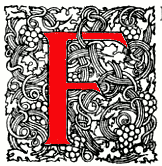
lorence Nightingale composed all her post-Crimea writings as a person who had extensive personal experience both of nursing AND as a sufferer of acute and chronic disabling illness. Her thoughtful Notes on Nursing show a profound empathy with the sick, as well as with their carers, and her way of making suggestions for small improvements that have large effects has the ring of someone who notices the details of what life is like as seen from a sickbed.
Recent work on the terrible fever she suffered in the Crimea suggests that Miss Nightingale had recently contracted brucellosis, an acute near fatal illness which became in her case chronic and debilitating. The misogynist Australian biographer F.B. Smith regarded her invalidism as hysterical, and her later seclusion manipulative, but he had no interest in the real cause of her physical problems, and had not the benefit of any understanding of the ubiquity of brucella, and its profound effects on the human organism.... or, indeed, of the life of an intelligent Victorian woman stymied at every turn by the patriarchal - often still feudal - society in which she and her contemporaries were fixed subordinates. Brucella was only defined in the very late nineteenth century, and there was no cure for it until antibiotics were discovered of value, long after her death. For patriarchy to change, we are still waiting.
That she achieved so much both in the Crimea and afterwards is tribute to what an extraordinary and dedicated woman she was.


Left: Florence Nightingale by Arthur George Walker, R.A. 1861-1936. 1910. Bronze. Right: Florence Nightingale [in hospital, advising] by Arthur George Walker, R.A. Both Part of the Crimean War Memorial located facing Waterloo Place at the junction of Lower Regent Street and Pall Mall, London. [Click on images to enlarge them.]
I had absorbed admiration for her from childhood exposure to the mythic figure of Victorian legend, burnished and promulgated for the consumption of girls in the twentieth century. But I wavered under the persuasive influence of F.B. Smith. More recently still, during my researches on the Victorian Poor Law, having researched her life properly myself, I have managed to reach a better-informed perspective on her, and on F. B. Smith! I've developed enormous respect for her, which is not primarily to do with the celebrated Lady of the Lamp era everybody knows about, but her work subsequent to the Crimea. She was a hugely influential force for good during her lifetime, and for long after, both in the professionalisation of nursing, nurse-training and nursing practice, hygiene, hospital management, and the architectural design of hospitals, as well as in the fundamental principle that patienthood should remove a person from their normal social predicament (ie: social class) into a different realm, a realm in which care is primary.
Her recognition that God had chosen Christ to be raised in a working-class family, not a rich one like her own, underpinned her service to the ordinary soldiers in the Crimea, and her commitment to the recipients of charitable healthcare. She was not raised as a Quaker, but she developed her own Christian insight that saw God in every individual. Her efforts to improve workhouse nursing and Poor Law attitudes towards the sick and dying resulted in a nationwide building programme in the 1870s, of strong and mostly well-designed hospital buildings for public health care under the Poor Law. She saw that charity was not good enough, and that State provision was the only efficient form of care both for the army and for the community. Many of these Victorian buildings continued to serve the sick when the hated Poor Law system was abolished in 1948, and were transformed into National Health Service premises. Although many have been rebuilt, their sites are still Victorian in origin. Her vision underpinned the establishment of the National Health Service, and its treatment of patients according to need.
Nightingale did not do all this alone, there were a great many other people pushing at the same door. She was hugely influential because of her status as the English heroine of the Crimea, and she used her fame judiciously because she knew that the improvements she sought were opposed by the Establishment, and that the society in which she was working was controlled by upper class men who had no experience of or interest in caring for the sick or the poor. The changes she saw were needed were largely achieved by an understanding of how power works in British society: by judicious report-writing, by carefully placed anonymous news commentary in the press, through one-to-one meetings with selected individuals whom she trusted, by carefully-timed and worded letters to the right people, by pushing for good people to be appointed to key posts, and by careful choices about which causes to back with her name. Her writings are a vast resource, recently brought to press by the prodigious efforts of Professor Lynn McDonald, who has grouped them in helpful volumes, and published them online (though sadly, behind a paywall). There should surely be more well-informed scholarship on her life and work now that this splendid resource is available.
Bibliography
McDonald, Lynn. Nightingale at First Hand. London: Continuum, 2010.
Smith, Cecil Woodham. Florence Nightingale (1951). New York: Atheneum Books, 1983.
Smith, F.B. Florence Nightingale: Reputation and Power. London: Palgrave Macmillan, 1982.
“His efforts are neither unique nor innovative and occasionally arbitrary and confusing.” — Eugene L. Rasor, The Historian 46 (1984): 439-40.
Pelling, Margaret. [Review of Smith’s Florence Nightingale: Reputation and Power]. The English Historical Review 99 (Oct., 1984): 918-19.
Young, D.A.B. “Florence Nightingale’s Fever.” British Medical Journal 311 (1995): 1697-1700.
Last modified 8 September 2023